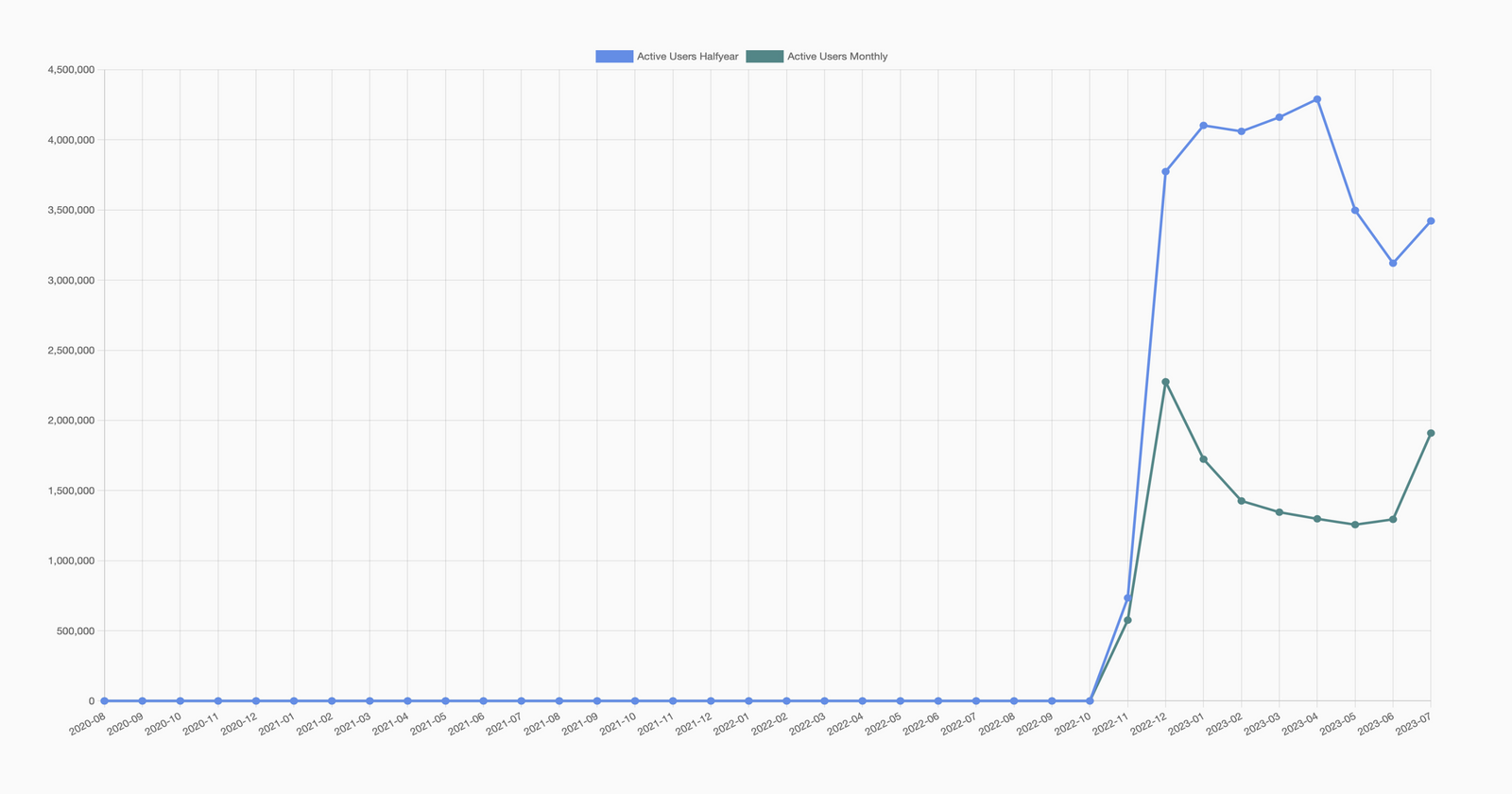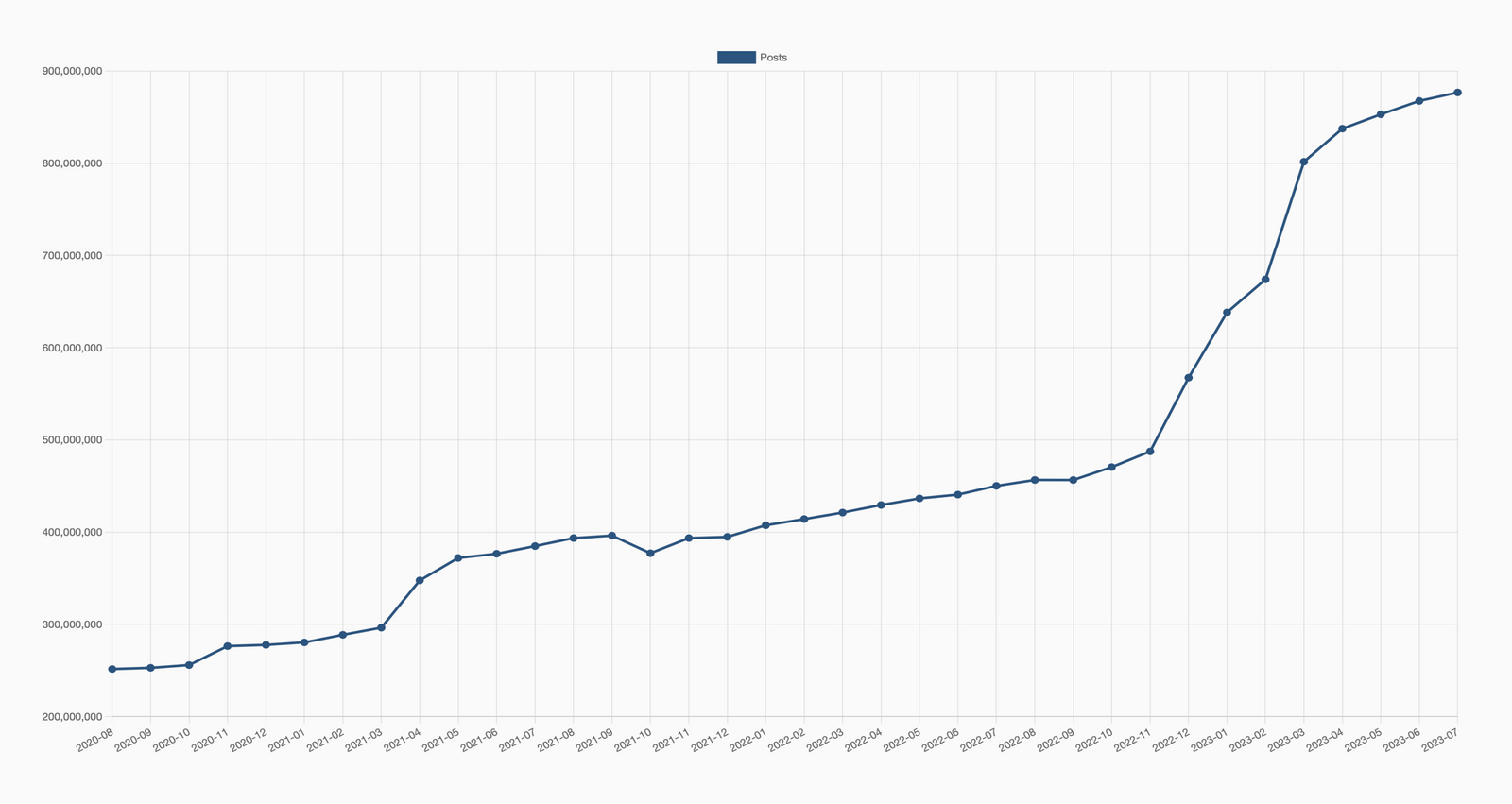After an impressive launch, Threads is apparently experiencing a decrease in multiple engagement metrics. Fewer users are using the app, and for those who keep using it, they are spending less time on it.
I have read people concluding from these numbers that “Threads is failing”. But I do not think those numbers can support this conclusion.
When a new product launches, it never pleases all of its users. A retention rate of 100% is not, never was, and will never be, a thing. Even a perfectly designed, perfectly scaled, and perfectly launched new product will have users who try it, realize it is not for them, and stop using it. The drop in engagement Threads is experiencing is expected.
Even worse, we recently went through a similarly flawed narrative with Mastodon. When Elon Musk bought Twitter in October 2022, Mastodon saw a massive increase in monthly active users. Soon after, the number of monthly active users started to drop.

Many claimed that Mastodon had “failed”. But calling Mastodon a failure solely because monthly active users dropped was an overstretch. As the plot above shows, the number of monthly active users indeed dropped. But then, it stabilized with a retention rate of approximately 60%: 60% of previous monthly active users kept using Mastodon. And in July 2023, the number of monthly active users started to rise again.
Other engagement metrics did not fit with the narrative that Mastodon had “failed”. For instance, the monthly number of posts published in Mastodon kept increasing. It means that even if fewer people were using Mastodon compared to the peak at the end of 2022, those who kept using it used it increasingly more.

Many over interpreted a few data points, and prematurely concluded that Mastodon had failed. And many are doing the exact same mistake with Threads. I am not saying Threads, nor Mastodon for that matter, will be a success. Assuming we have a clear definition of what “success” is, which we do not have, nobody knows. Instead, what I am saying is that drawing a grand conclusion from a few data points is imprudent. It was imprudent to do it back then with Mastodon, and it is imprudent to do it now with Threads.
In my opinion, it is even more imprudent considering that even with these decreasing metrics, Threads still have dozens of millions of active users. For a minimal viable product launched a week ago, those are impressive numbers.
Last but not least, a decrease in active users can actually be a good thing for Threads — in the same way it probably was a good thing for Mastodon. Massive and sudden increases in users are not sustainable. They exhaust the people running the platform, the infrastructure and sometimes, the users themselves — who are stuck with a degraded product. A drop in activity gives more time to the people running the platform to stabilize it, and to prepare it for the next increase.
At the end, launching a new product is a marathon, not a sprint. In the same way that Twitter will not die overnight (if it dies one day, which is far from obvious), Threads will not become a major product overnight. We need to be more prudent, more patient, and to be wary of shiny, but ultimately flawed, narratives.



